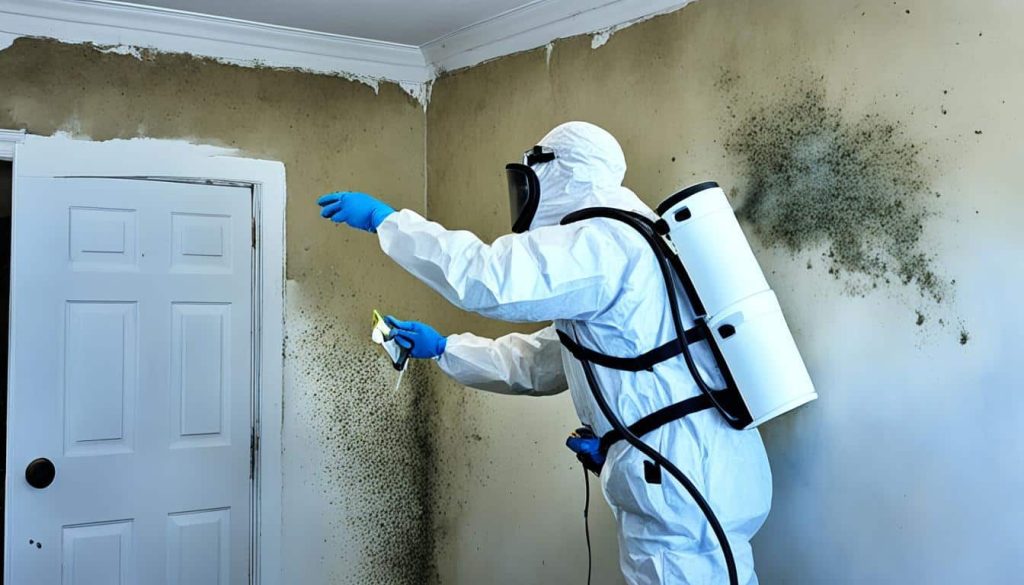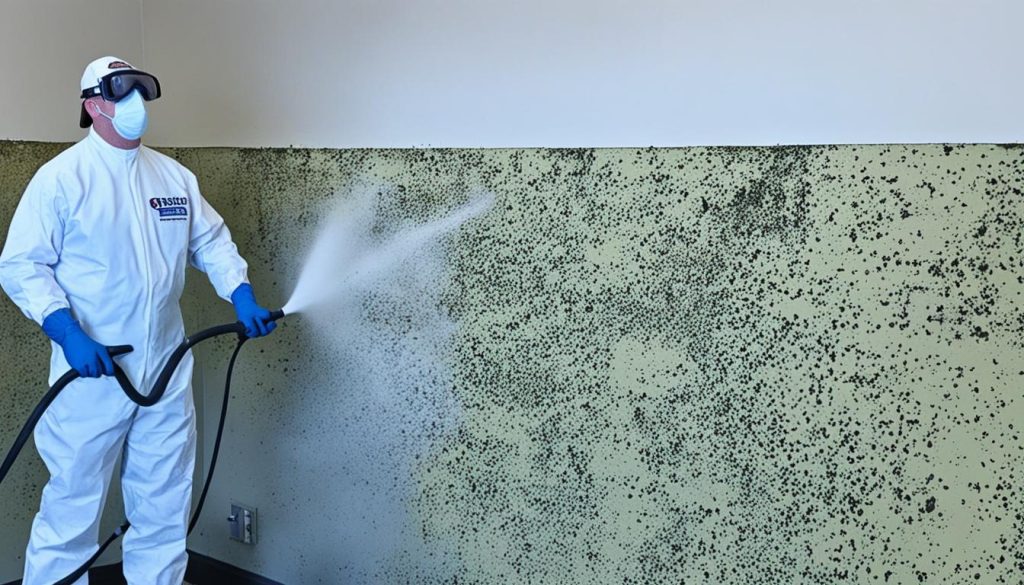Mold in your apartment? One of the appealing aspects of renting an apartment, rather than owning a home, is the reduced responsibility for repairs and replacements. From malfunctioning HVAC systems to broken dishwashers, renters typically aren’t responsible for the costs associated with these issues. However, when it comes to mold growth in your apartment, the situation becomes a bit more complex. Mold can pose significant health risks and cause structural damage, making it crucial to understand how to address this issue effectively. This article provides a comprehensive guide on dealing with mold in your apartment and what steps you should take if you encounter it.
Array of Solutions, a trusted name in mold removal in Greenville South Carolina since 2007, stands ready to tackle your mold woes. With our expert mold inspection Greenville services and EPA-Registered credentials, we’re equipped to detect, remove, and prevent mold growth in your home or business.
Table of Contents
Mold in Your Apartment: Understanding the Risks and Responsibilities
What’s the Big Problem With Mold?
Mold is more than just an unsightly nuisance; it can be dangerous for several reasons. Primarily, mold growth often results from moisture intrusion or water damage, indicating that there may be underlying issues that need addressing beyond just the mold itself. Mold thrives in damp environments and can significantly damage building materials and structures over time.
Health-wise, mold exposure can lead to a range of issues, from allergic reactions to more severe respiratory problems. Common symptoms of mold exposure include nasal congestion, coughing, wheezing, skin irritation, and eye discomfort. For individuals with asthma or other pre-existing respiratory conditions, mold exposure can exacerbate symptoms and lead to more serious health concerns.

How to Identify Mold in Your Apartment
Detecting mold early can prevent more severe problems down the line. Here are some signs that mold might be an issue in your apartment:
- Musty Odors: Mold often emits a musty or damp smell, which can be a clear indicator of mold presence.
- Visible Marks or Stains: Look for unusual marks, stains, or discoloration on walls, ceilings, and floors. Mold often appears as black, green, or white patches and can be fuzzy or slimy in texture.
- Recent Water Damage: If there has been recent water damage in your apartment that was not properly addressed, it could be a breeding ground for mold. This includes leaks, flooding, or high humidity.
- Unexplained Symptoms: If you or other occupants experience health symptoms such as sneezing, coughing, or itchy eyes with no apparent cause, mold could be a contributing factor.
What to Do if Mold is in Your Apartment
If you discover mold in your apartment, it is important to take the right steps to address the issue and ensure it is resolved effectively. Here’s a step-by-step guide on how to handle the situation:
1. Notify Your Landlord
The first step is to inform your landlord about the mold issue. Your lease agreement may outline the landlord’s responsibilities regarding maintenance and repairs, including mold remediation. When contacting your landlord:
- Document the Issue: Provide clear details about the mold’s location and any symptoms or damage observed. Taking photos or videos can support your claim.
- Request Mold Testing: Ask your landlord to arrange for a professional mold inspection. A certified mold inspector can assess the extent of the problem and determine the necessary remediation steps.
2. Take Initiative if Necessary
If your landlord does not promptly address the issue, you may need to take additional steps:
- Hire a Mold Inspector: If your landlord is unresponsive, consider hiring a mold inspector yourself. Inform your landlord of your decision and provide them with any relevant findings from the inspection.
- Reimbursement: If the mold test results confirm the presence of mold, request reimbursement for the inspection costs from your landlord.
3. Escalate the Issue if Required
If your landlord still refuses to address the mold problem, you may need to escalate the issue:
- Seek Legal Advice: Consult with an attorney who specializes in tenant rights or landlord-tenant disputes. They can advise you on the best course of action and represent your interests if necessary.
- Tenant Rights: Review your lease agreement and local rental laws to understand your rights and responsibilities. In some cases, mold issues may be grounds for lease termination or rent reduction.

Conclusion
Dealing with mold in your apartment requires prompt action and careful management. By understanding the risks associated with mold, identifying signs of mold growth, and taking the appropriate steps to address the issue, you can protect your health and maintain the integrity of your living environment. Always prioritize safety and follow through with necessary actions to ensure the mold is effectively removed and any underlying issues are resolved.

